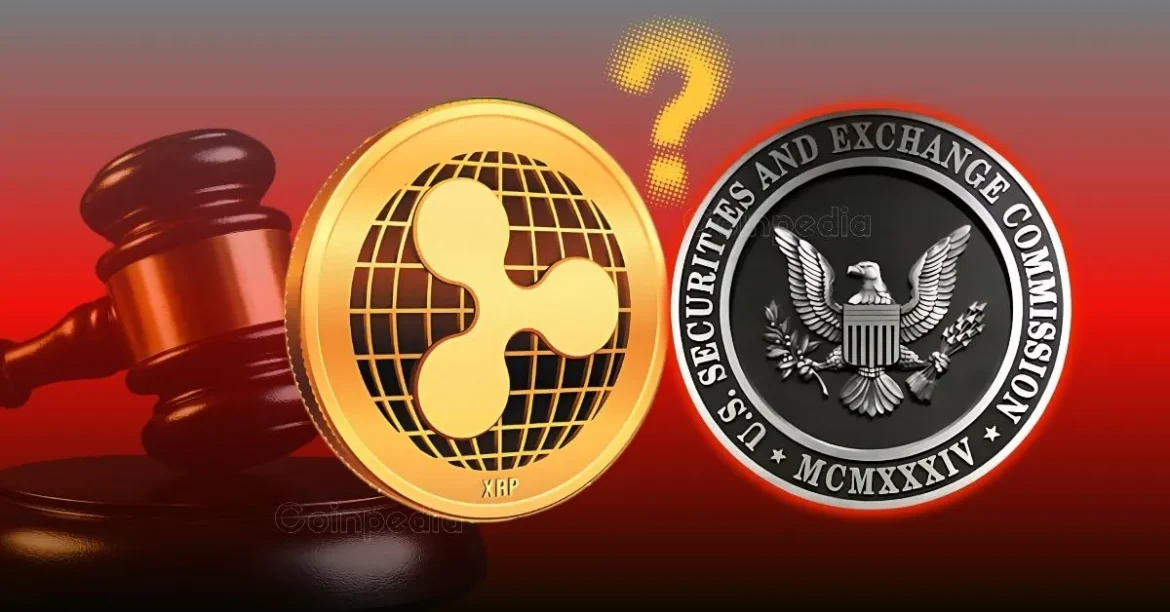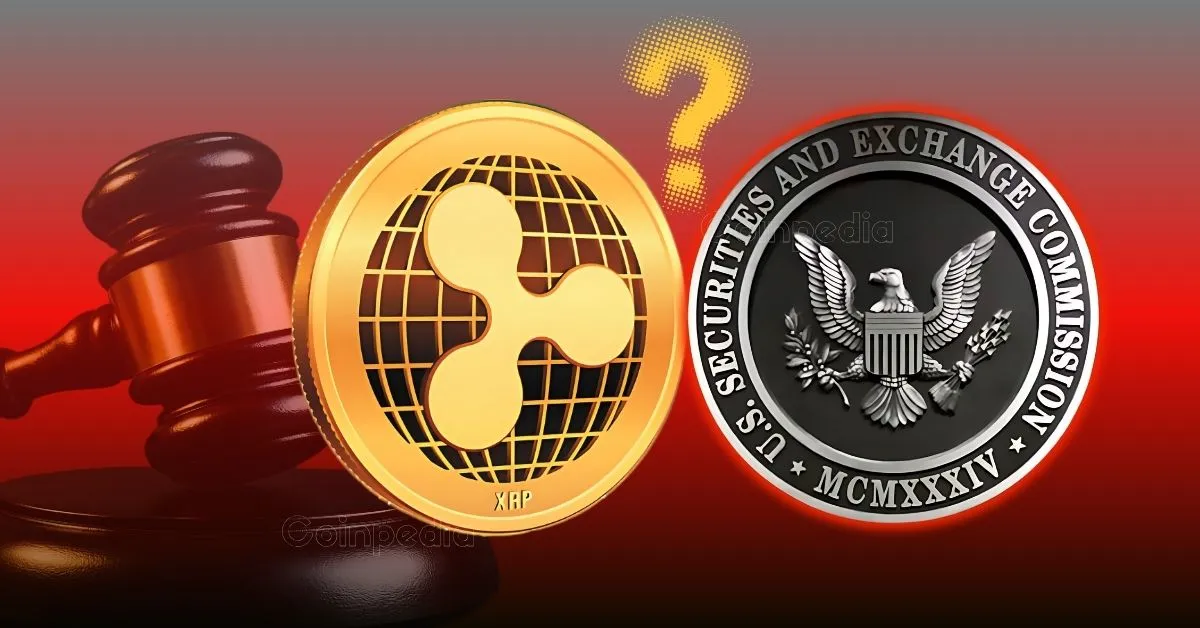The Ripple vs. SEC Lawsuit: An Evolving Legal Saga and Its Implications for XRP and Crypto Regulation
=========================================================================================
The long-running legal battle between Ripple Labs and the U.S. Securities and Exchange Commission (SEC) over the classification and sale of XRP, Ripple’s digital token, remains unresolved despite recent developments. This analysis explores the latest updates, legal intricacies, key stakeholder reactions, and the broader regulatory context shaping the case’s trajectory and potential impact on the cryptocurrency market.
Background: The Ripple-SEC Conflict
———————————–
In late 2020, the SEC filed a lawsuit against Ripple Labs, alleging that the company conducted a $1.3 billion unregistered securities offering through the sale of XRP tokens. The agency argued XRP was a security and subject to SEC rules, while Ripple contended XRP is a digital commodity akin to Bitcoin or Ethereum, not a security. Early rulings have partially favored Ripple, notably a federal judge’s decision that XRP is not a security when traded on secondary public exchanges, marking a landmark symbolic victory for Ripple and the crypto industry at large.
Recent Developments: Not a Closed Chapter
—————————————–
Despite optimistic headlines and community celebrations over perceived court victories, insiders and former SEC attorneys caution the Ripple lawsuit is far from closed:
– Legal Process and Appeals: The SEC has officially dropped its appeal against certain rulings, yet remaining parts of the case and associated charges against Ripple executives are pending. The lawsuit involves complex procedural steps requiring formal commissioner votes within the SEC, which complicate and prolong the case closure.
– Key Opinions: Marc Fagel, a former SEC enforcement lawyer, has emphasized that the situation is “a far bigger issue” than simple procedural paperwork, indicating unresolved substantive challenges. Other legal experts highlight that dismissal requires all parties’ consent and formal court approval, thwarting expectations of a swift resolution.
– Pending Motions and Court Decisions: Judge Analisa Torres recently denied a joint motion for an indicative ruling on settlement possibilities, underscoring continued legal proceedings. Motion denials and procedural rejections prolong the timeline, with predictions by legal professionals that final resolution may extend into mid-2025 or beyond.
Ripple and SEC Negotiations: Prospects for Settlement
—————————————————–
There is ongoing speculation around a private settlement, potentially circumventing prolonged court battles:
– Settlement Possibilities: Some former SEC attorneys and crypto lawyers, including Jeremy Hogan and Marc Fagel, foresee a settlement that could quietly resolve disputes, possibly with sealed terms. Ripple has indicated openness to settlement but with the condition that XRP be definitively ruled a non-security.
– Strategic Considerations: The SEC’s apparent retreat or selective dropping of appeals appears linked with regulatory ambiguity and shifting agency priorities under different administrations. Ripple’s leadership, notably CEO Brad Garlinghouse, views settlement as contingent on regulatory clarity that XRP is not a security, suggesting a more definitive legal conclusion rather than a mere payout.
Regulatory Ambiguity and Its Consequences
—————————————–
The Ripple case exemplifies broader regulatory uncertainties:
– SEC’s Shifting Stance: The lawsuit started under the Trump administration and evolved under Biden’s SEC leadership, reflecting variability in enforcement priorities. Statements from Ripple’s Chief Legal Officer cite the lack of clear regulatory guidelines as a root cause of litigation and industry uncertainty.
– Industry Implications: The prolonged lawsuit has hindered XRP adoption and broader crypto innovation by creating a chilling effect on market confidence. Legal experts note Ripple and XRP’s multi-year delay in adoption trajectory due to these uncertainties—costly for investors and the broader ecosystem.
Community and Market Reactions
——————————
The XRP community has experienced mixed sentiments:
– Premature Celebrations: Some groups prematurely celebrated the lawsuit’s “end” following recent SEC decisions to drop appeals or positive court rulings; however, legal observers advise caution stressing remaining unresolved aspects.
– Market Impact: XRP price movements correlate strongly with legal developments and statements from Ripple’s executives. Announcements about SEC appeals or settlement hints spur volatility and trading interest, as seen in recent surges and profit-taking episodes among traders.
Legal Perspectives on Next Steps
——————————-
Insight from attorneys and experts illuminate the procedural and substantive labyrinth ahead:
– Appellate Jurisdiction Issues: A noted complexity is that appellate courts lack jurisdiction to enforce judgments, complicating immediate appellate relief or enforcement of rulings.
– Commissioner Votes and Policy Implications: Formal SEC commissioner votes are necessary for official lawsuit dismissal, creating procedural hurdles that delay resolution. Such internal agency processes underscore the political and bureaucratic factors influencing case outcome.
– Potential for Summary Judgment or Further Trials: Some charges against company executives remain untested in court. Judge Torres’ rulings indicate that while Ripple secured major wins, litigation will persist on other fronts, potentially culminating in trials or further motions.
Conclusion: Ripple vs SEC — A Microcosm of Crypto’s Regulatory Future
———————————————————————
The Ripple lawsuit represents more than a battle over a single cryptocurrency’s classification; it serves as a bellwether for regulatory clarity, enforcement consistency, and the maturation of digital assets in mainstream finance. While the SEC’s retreat on certain appeals and partial court decisions have energized Ripple’s supporters, the legal saga endures amid significant procedural and substantive complexities. The path ahead likely includes:
– Formalized dismissal through SEC commissioner votes or settlement agreements with confidential terms.
– Potential trials on unresolved matters affecting executives and company liabilities.
– Ongoing shifts in regulatory frameworks that influence crypto compliance landscapes.
For XRP holders, investors, and industry watchers, continued vigilance and nuanced understanding of legal developments are essential. The case underscores the pressing need for clear digital asset regulations to foster innovation while safeguarding market integrity. Ripple’s experience illustrates both the challenges and opportunities awaiting the crypto community as it navigates the evolving intersection of technology and law.





